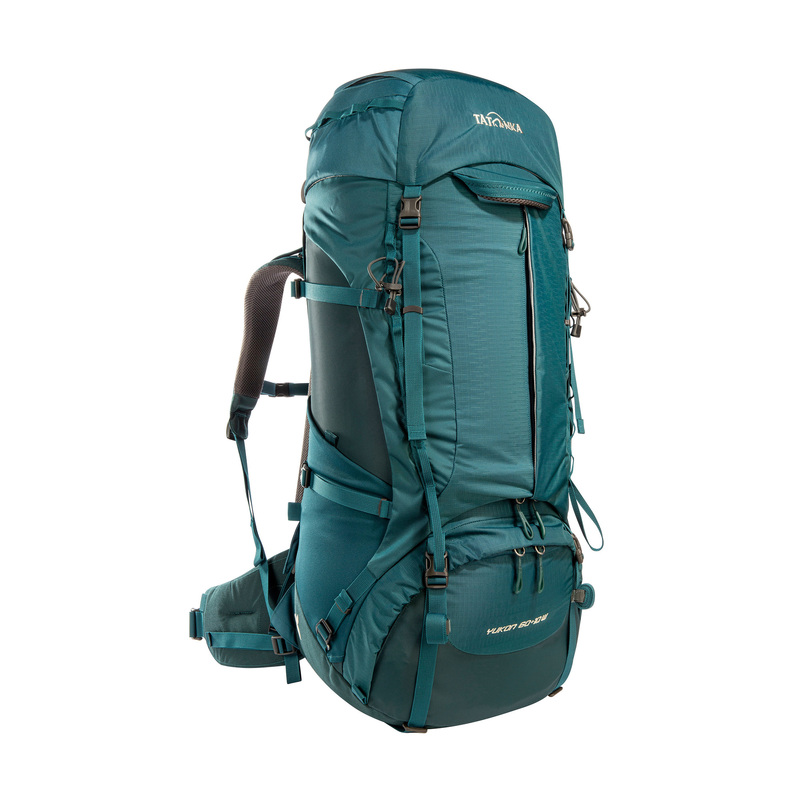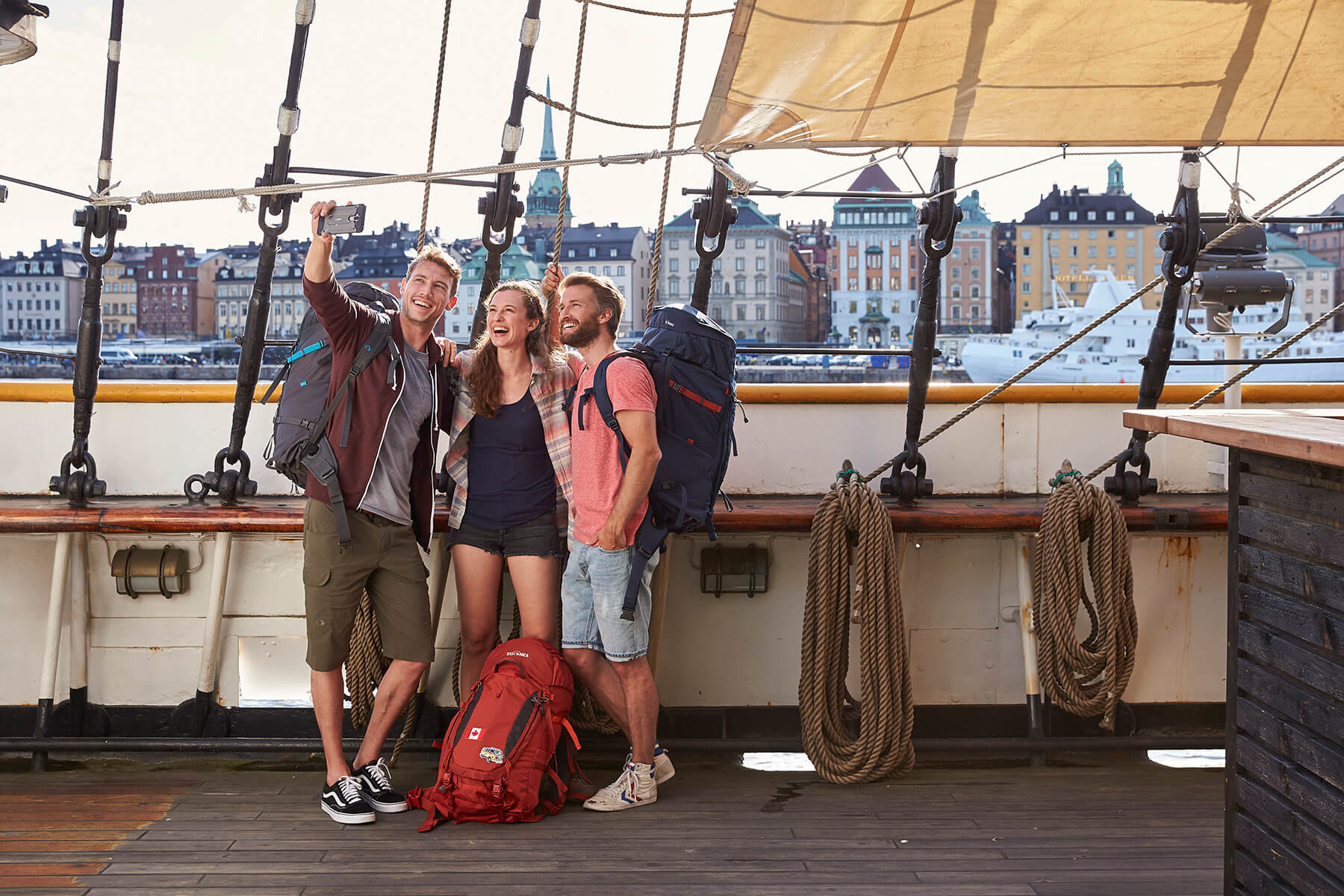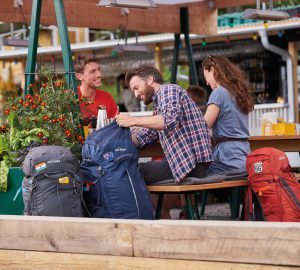Sometimes wanderlust arrives without warning! When the longing for distant countries, foreign cultures or other climates takes over, you want to start your backpacking trip asap. But before you depart there are a few things to be considered. We have put together a list of things to think about in advance.
Leave yourself enough time to make preparations, you will be surprised by how many things there are to do. If you need to apply for a visa, there are time limits which must be taken into account; if you get a vaccination, then a certain period of time must pass before it can protect you. It also does no harm to leave a small time buffer for any other unforeseen circumstances. Depending on your backpacking destination, a preparation time of 6-8 weeks is recommended.
Entry requirements
It is absolutely essential before starting your journey to take a look at your passport or apply for one. (Caution: it can take up to eight to six weeks for a passport to be issued). Always take a close look at the validity of your passport but also at the regulations of your destination on how long a passport should still be valid after your entry.
You may also need a visa. Please check the website of your national Foreign Office – normally, you will find an overview of all countries and their entry requirements there.
Also interesting: Planning a world trip – the perfect route for your big time-out
Vaccinations
It depends on your destination which vaccinations you will need. It is therefore essential to consult a doctor before you leave. Classical vaccination protection for example against measles, diphtheria, poliomyelitis or influenza should be checked and updated as necessary.

The Tatonka Yukon with large opening, lockable zipper and rain cover included.
And best of all, the V2 carrying system relieves pressure on your spine. This means you can carry the Yukon over longer distances without any problems.
There are medical advice centers, especially institutes of tropical medicine and public health departments, which are specialized in overseas medicine precautions. The classic travel vaccinations include hepatitis A, yellow fever and typhoid.
You must also take into account that some vaccinations, e.g. against rabies or hepatitis B, must be given in several doses at specific intervals so that the preparation time can be considerably longer. If your journey takes you to countries where malaria is common, then of course malaria prophylaxis is recommended.
Reading tip: Backpacker or flashpacker? 5 characteristics to check what kind of traveler you are
Medical check
In general it is always advisable to consult a doctor before overseas travel. It can be clarified if your physical condition allows a long flight and subsequent climate changes.
Regardless of this, advice on thrombosis precautions is also useful. On long flights which mean sitting for a long time there is an increased thrombosis risk. When sitting for a longer time the veins in the knee region are “bent” and so the blood flow is slower. There are medications or aids such as thrombosis stockings. During the flight you can also practice some special exercises against thrombosis for example by walking up and down the aisle, massage of the calves and drinking a lot of fluid.
Do you take medication regularly? Please clarify with the doctor the intake of them. The timing for taking your medicine must often be coordinated to time differences. This applies in particular for medication to lower the blood pressure or for anticoagulants, cortisone and contraceptive pills.
If you like to travel by motorbike this article might interest you: Travelling Vietnam by motorbike – an epic journey in Southeast Asia
Travel First-Aid Kit
In connection with your visit to the doctor you can also check how well equipped your first-aid kit is or start putting it together. The basic version includes: Medicine against fever and pain, nausea, gastrointestinal complaints, sunburn, insect bites, allergies, fungal diseases, conjunctivitis and bruises.
Sun protection
Regardless of whether your backpacking trip takes you to tropical, Mediterranean, polar or more moderate climates, you must always take sun cream with you. Our skin has a limited built-in protection which depends on skin, hair and eye color.
The rule of thumb is: the lighter the skin and hair, the more sensitive you are to the sun. A waterproof sun cream with a high protection factor can reduce the risk of sunburn, but cannot prevent it entirely. It only prolongs the skin’s own protection time.
Travel health insurance
Who thinks of getting sick when booking a trip? Especially when traveling to countries where the climate and hygiene can be quite a challenge to people from Central Europe, it makes sense to have a good international health insurance. Your national health system offers very often only limited help abroad.
An international health insurance covers the costs for operations, medication, dental treatments, hospital stays and even for return transport. Premiums depend on the provider, the duration and the tariff model, but are in all cases better than what would have to be paid without insurance. For a journey to an overseas destination international health insurance is therefore an absolute must.
Dos and don’ts in other countries
Different countries have different customs – how to behave in foreign cultures, which codes exist, is very often not obvious at first glance.
Especially if your way leads you to Islamic countries and you are travelling as a couple, it is important to note that the exchange of tenderness in public is often forbidden and can be punished. In addition, it is also advisable to adapt to clothing habits.
Find out how to deal with cultural differences if travelling to Vietnam: Dos and don’ts in Vietnam – 5 tips for your backpacking trip
In Asian countries, on the other hand, there are certain rules of courtesy that should be known to every backpacker. In general, it is advisable to do extensive research on the manners at your destination if you want to move there appropriately.
Please note: This article has been published in January 2016 and revised in July 2024.







